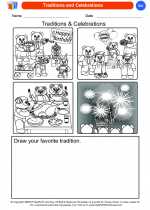Me and My Family
Introduction
Understanding the concept of family and relationships is an important part of early childhood development. In this study guide, we will explore the different aspects of families and how each member contributes to a happy and healthy family environment.
What is a Family?
A family is a group of people who are related to each other by blood, marriage, or adoption. Families come in all shapes and sizes, and each family is unique in its own way.
Types of Families
There are different types of families, including:
- Nuclear Family: A family unit consisting of parents and their children.
- Extended Family: A family that includes grandparents, aunts, uncles, and cousins living together or in close proximity.
- Single-Parent Family: A family consisting of one parent and their children.
- Blended Family: A family unit where one or both parents have children from previous relationships.
Roles in the Family
Each member of the family plays a specific role. These roles may include:
- Parent: The caregiver and provider for the family.
- Child: The young member of the family who is learning and growing.
- Sibling: A brother or sister within the family unit.
- Grandparent: The elder members of the family who provide wisdom and support.
Family Activities
Family activities are important for building strong bonds and creating lasting memories. Some common family activities include:
- Family Meals: Eating together as a family promotes communication and togetherness.
- Outdoor Adventures: Going on hikes, picnics, or bike rides as a family encourages physical activity and exploration.
- Game Nights: Playing games together fosters teamwork and friendly competition.
- Celebrating Special Occasions: Holidays, birthdays, and other special events bring the family together for joyful moments.
Discussion Questions
Here are some questions to spark discussions about families:
- What makes your family special?
- How do family members help each other?
- What are some of your favorite family activities?
- Why is it important to spend time together as a family?
Conclusion
Understanding the dynamics of a family and the importance of each member's role can help children appreciate the value of family relationships. By learning about their own family, children can also develop empathy and respect for other families in their community.
[Me And My Family] Related Worksheets and Study Guides:
.◂Science Worksheets and Study Guides Kindergarten. Me and My Family
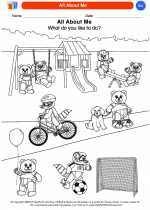
 Coloring Worksheet
Coloring Worksheet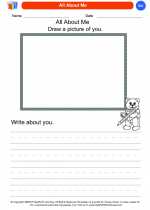
 Coloring Worksheet
Coloring Worksheet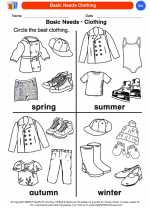
 Coloring Worksheet
Coloring Worksheet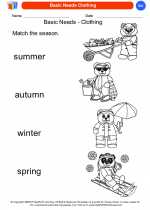
 Coloring Worksheet
Coloring Worksheet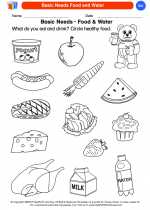
 Coloring Worksheet
Coloring Worksheet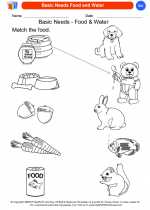
 Coloring Worksheet
Coloring Worksheet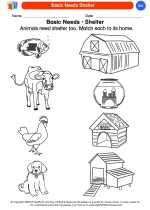
 Coloring Worksheet
Coloring Worksheet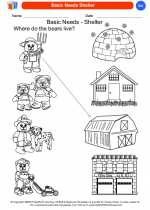
 Coloring Worksheet
Coloring Worksheet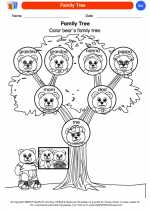
 Coloring Worksheet
Coloring Worksheet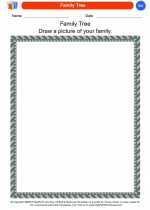
 Coloring Worksheet
Coloring Worksheet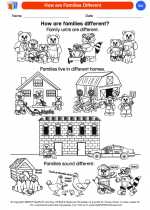
 Coloring Worksheet
Coloring Worksheet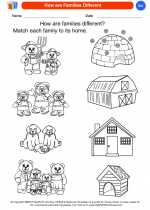
 Coloring Worksheet
Coloring Worksheet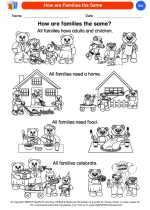
 Coloring Worksheet
Coloring Worksheet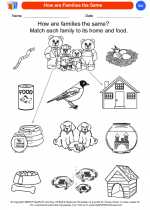
 Coloring Worksheet
Coloring Worksheet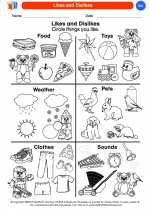
 Coloring Worksheet
Coloring Worksheet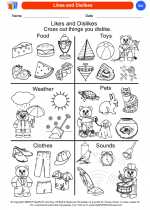
 Coloring Worksheet
Coloring Worksheet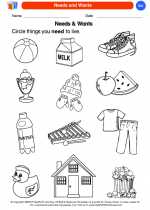
 Coloring Worksheet
Coloring Worksheet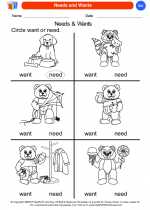
 Coloring Worksheet
Coloring Worksheet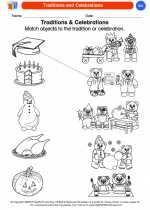
 Coloring Worksheet
Coloring Worksheet